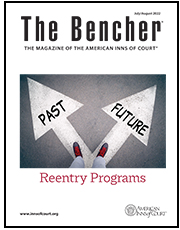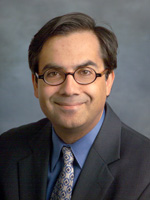New ABA Ethics Opinion on Solicitation
The Bencher—July/August 2022
By John P. Ratnaswamy, Esquire

 As you may recall, in 2018, the American Bar Association (ABA) amended its ABA’s Model Rules of Professional Conduct relating to “information about legal services,” commonly known as the Model Rules on advertising. Perhaps the most extensive amendments were made in Model Rule 7.3, Solicitation of Clients. The amendments, among other things, added a narrowed definition of solicitation to the body of the Model Rule and revised the provisions on “live person-to-person contact”:
As you may recall, in 2018, the American Bar Association (ABA) amended its ABA’s Model Rules of Professional Conduct relating to “information about legal services,” commonly known as the Model Rules on advertising. Perhaps the most extensive amendments were made in Model Rule 7.3, Solicitation of Clients. The amendments, among other things, added a narrowed definition of solicitation to the body of the Model Rule and revised the provisions on “live person-to-person contact”:
(a) “Solicitation” or “solicit” denotes a communication initiated by or on behalf of a lawyer or law firm that is directed to a specific person the lawyer knows or reasonably should know needs legal services in a particular matter and that offers to provide, or reasonably can be understood as offering to provide, legal services for that matter.
(b) A lawyer shall not solicit professional employment by live person-to-person contact when a significant motive for the lawyer’s doing so is the lawyer’s or law firm’s pecuniary gain, unless the contact is with a:
(1) lawyer;
(2) person who has a family, close personal, or prior business or professional relationship with the lawyer or law firm; or
(3) person who routinely uses for business purposes the type of legal services offered by the lawyer.
The amendments also added comment language on what is meant by “live person-to-person contact” and discussed some concerns about live contact, among other subjects.
Nonetheless, amended Model Rule 7.3, while answering some questions, potentially raised others about how far a lawyer’s responsibility extends for actions of other persons.
On April 13, 2022, the ABA’s Standing Committee on Ethics and Professional Responsibility issued Formal Opinion No. 501, Solicitation. The committee opined that the question of the extent of a lawyer’s responsibility for breaches of solicitation prohibitions is not answered solely by Model Rule 7.3. The committee concluded that Model Rule 8.4, Misconduct, in its subsection (a), and Model Rule 5.3, Responsibilities Regarding Nonlawyer Assistance, extend a lawyer’s responsibility for compliance with solicitation prohibitions not only to actions carried out by the lawyer directly but also to the acts of persons employed by, retained by, or associated with the lawyer under certain circumstances.
Per the committee:
- Model Rule 5.3(b) requires lawyer supervisors to make reasonable efforts to ensure that all persons employed, retained, or associated with the lawyer are trained to comply with the Rules of Professional Conduct, including Rule 7.3(b)’s prohibition.
- Under Model Rule 5.3(c), a lawyer will be responsible for the conduct of another if the lawyer orders or with specific knowledge of the conduct ratifies it, or if the lawyer is a manager or supervisor and knows of the conduct at a time when its consequences can be avoided or mitigated but fails to take reasonable remedial action.
- Model Rule 8.4(a) makes it professional misconduct for a lawyer to “knowingly assist or induce another” to violate the Model Rules or knowingly do so through the acts of another. Failing to train a person employed, retained, or associated with the lawyer on Model Rule 7.3’s restrictions may violate Rules 5.3(a), 5.3(b), and 8.4(a).
The committee also provided four “hypotheticals” to illustrate its understanding of the application of the Model Rules on solicitation. In three of the four hypothetical situations, the committee found at least one likely violation of the Model Rules.
The committee’s opinions, like the Model Rules, are not governing law. However, nearly every state is a “Model Rules state” in the sense of paying some heed to the Model Rules. The committee’s opinion may be found at www.americanbar.org/groups/professional_responsibility/publications/
ethics_opinions.
John P. Ratnaswamy, Esquire, is the founder of The Law Office of John Ratnaswamy, LLC, in Chicago, Illinois. He is an adjunct professor of legal ethics at the Northwestern University School of Law. He is the current chair of the American Bar Association Solo, Small Firm, and General Practice Division’s Committee on Ethics and Professional Responsibility. This column should not be understood to represent the views of any of those entities or his or the firm’s current or former clients.